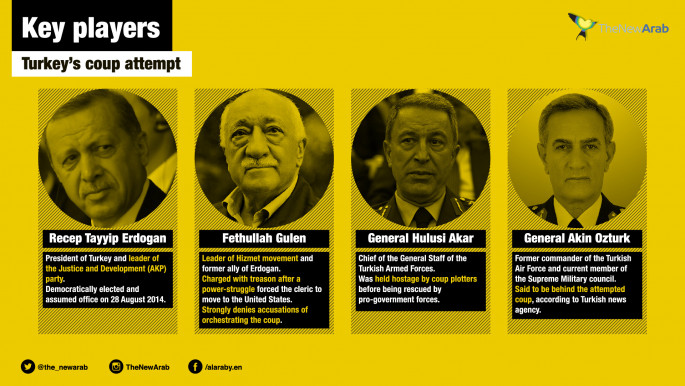More than 50,000 purged in post-coup Turkey clampdown
Turkish academics were banned from work trips abroad, while those already overseas were urged to return to the country on Wednesday.
Tens of thousands of Turkish academics, teachers and education staff were sacked or suspended from their jobs while the government earlier.
According to Turkish media sources, 15,200 teachers and educations staff were sacked, 1,577 university deans were forced to resign, and 8,777 interior ministry staff and 1,500 finance ministry workers fired. The prime minister's office also lost 257 staff in the purge.
The clampdown follows an attempt by factions in the Turkish army to seize control of the country.
President Recep Tayyip Erdogan has remained adamant that US-based cleric Fethullah Gulen was behind the putsch attempt, and investigators are looking for suspected "Gulenists" in public and private positions.
The Turkish embassy in Cambodia also announced on Wednesday that it was pressuring the government to lose Gulen-lined schools.
"There is very strong suspicion of his [Gulen's] involvement in this coup attempt. So this is sufficient grounds," said Turkish government spokesman Ibrahim Kalin in a statement.
Turkish Prime Minister Binali Yildirim described the preacher - who was once a close ally of Erdogan - as the leader of a "terrorist organisation".
"We will dig them up by their roots," he told parliament.

In response, Gulen has rejected the claims as "ridiculous" and urged the US government to refuse Turkish demands that he be extradited to his country of origin.
"I urge the US government to reject any effort to abuse the extradition process to carry out political vendettas," the Pensylvania-based preacher said in a statement.
On Tuesday, the licences of 24 radio stations and TV channels were revoked by Turkey's media regulatory body, who cited links to Gulen as a justification.
Prior to Tuesday's continuation of the crackdown, over 6,000 military personnel and 6,000 police officers had already been sacked. On top of this number, around 3,000 judges were suspended.
The tightening of control by Turkey's government after last week's events has alarmed many global observers, who have for a while been fearing a more authoritarian Erdogan government.
Turkey is also considering whether to reintroduce the death penalty and hang coup plotters.
Europe has reacted angrily to suggestions suspected plotters in Turkey could be executed.
Martin Schulz, President of the European Parliament, accused Turkey of exacting "revenge" against its political opponents. He added that if the death penalty were to be carried out, that would end talks about Turkish membership of the EU.


